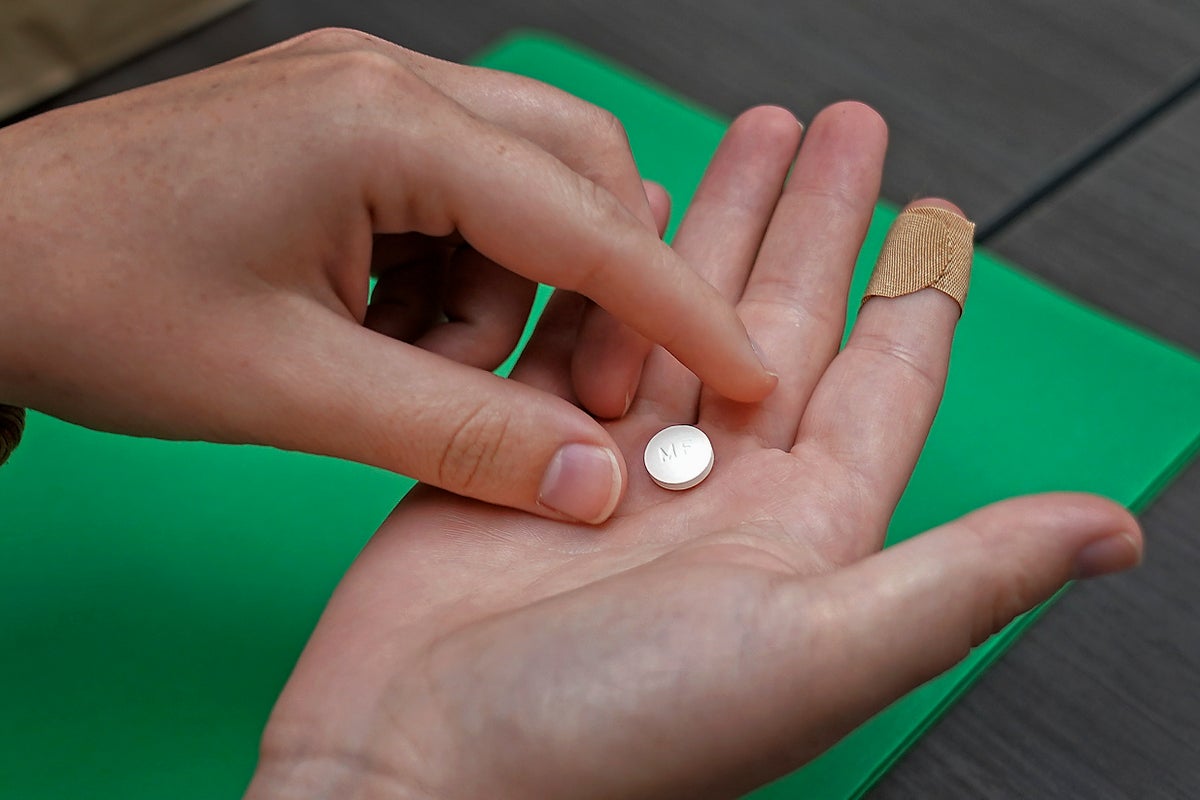Get the free Morning Headlines email for news from our reporters across the world
Sign up to our free Morning Headlines email
Police are testing “distressed” women who have suffered miscarriages for abortion drugs, healthcare providers have warned.
Medical professionals argue it is “deeply sinister” to test women who have endured a miscarriage who are suspected of illegal abortions for the drugs – arguing it adds to the guilt and stigma women routinely experience after pregnancy loss.
In one document, seen by The Independent, a bodily fluid sample was sent to a forensics lab to be analysed for a range of drugs – including the abortion drugs mifepristone and misoprostol. Another reveals a woman who agreed to allow police to have access to samples of her bodily fluids taken by NHS staff.
Abortion providers warned that women suspected of illegal abortions were being pushed into having the tests by police while in hospital with no legal representation and without first obtaining their proper consent.
Dr Jonathan Lord, co-chair of the British Society of Abortion Care Providers, also warned police were searching women’s phones for period apps and internet history after seizing their devices.
The latest Home Office data for England and Wales shows that recorded crimes for abortions have risen in recent years – up from 27 between April 2021 and March 2022, to 35 from April 2022 to March this year.
They include recorded crimes for three separate charges; procuring an illegal abortion, the intentional destruction of a viable unborn child and concealing an infant death pre-birth.
My personal struggle amid the global fight for abortion rights | Behind The Headlines
While the first two charges are punishable by life imprisonment, the latter carries a three-year prison sentence. Some cases included in the government data could relate to investigations into abusive partners forcing a woman into having an abortion.
The British Medical Association’s Medical ethics committee chair, Dr Jan Wise, said women must receive care and support without facing the “threat of criminal investigation”.
She added: “The British Medical Association campaigns for the removal of criminal sanctions from abortion and we are concerned by reports that police have been contacting medical teams to obtain information regarding the termination of pregnancies.
“We emphasise that doctors are under no obligation legal or otherwise to report to the police those patients who may undergo a termination of a pregnancy.”
Dr Lord, a consultant gynaecologist at the Royal Cornwall Hospitals NHS Trust, said it was “deeply sinister” of police to test women for abortion drugs and he raised concerns about “how routine it appears to be”.
He warned the “fairly routine” removal of women’s electronic devices when an unexplained pregnancy loss is suspected of being an illegal abortion was “especially concerning” as doctors cannot then contact patients at a time when they are in “maximum distress”.
Dr Lord added: “You can do almost nothing. You can’t access your bank accounts. That is all done using two-factor identification. It is completely disabling and this is happening even where people are not arrested or charged.”
He voiced fears patients would be deterred from seeking healthcare if they think that their confidentiality will be compromised and warned that increasing numbers of women have been suspected of having illegal abortions since around 2018.
Carla Foster, who was sentenced to 28 months in prison for taking abortion pills after legal cut-off, is to be freed from prison
(Stoke Sentinel/BPM MEDIA)
Abortions are still deemed a criminal act in England, Scotland and Wales under the 1967 Abortion Act.
Legislation passed in 1861 means any woman who ends a pregnancy without permission from two doctors can face up to life imprisonment. Any medical professional who delivers an abortion outside of the terms of the act can face criminal punishment.
Rachael Clarke, chief of staff at British Pregnancy Advisory Service, said the reports of tests could see “incredibly distressed” women in hospitals who may not be aware of their rights when they consent to giving samples.
Ms Clarke added: “They don’t have a solicitor sat next to them saying ‘don’t agree to give blood’. What they essentially have is a nice friendly medical professional saying: ‘Can we take this from you?’ And then uniformed police officers marching it off.
“These women are often in a very vulnerable state, they may consent to things that in the cold light of day, they actually wouldn’t. Because they are in hospital, they may be vulnerable or in pain. They may have just recovered from surgery.”
A spokesperson for the National Police Chiefs Council declined to comment.
✕
Subscribe to Independent Premium to bookmark this article
Want to bookmark your favourite articles and stories to read or reference later? Start your Independent Premium subscription today.
SubscribeAlready subscribed? Log in
Popular videos
{{/link}}

